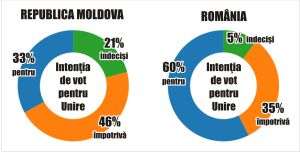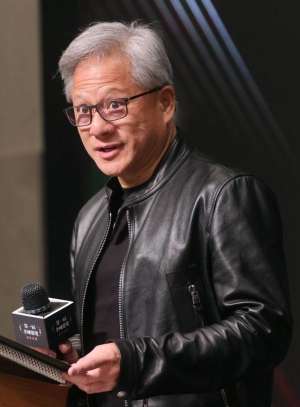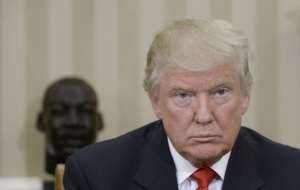In an unstable economic context and marked by multiple challenges, the debate on the establishment of a Sovereign Investment Fund (SIF) was recently relaunched in the public space, a topic that will be extensively analyzed in an event organized today by the Association of Brokers in Romania, in partnership with SCA Piperea and Associates.
During the event, one of the speakers who will plead for the establishment of such a fund is Mircea Ursache, former president of AVAS, former president of Fondului Proprietatea and former vice president of ASF, who drew our attention to the fact that he proposed the creation of the FSI since 2009 to the Government of Romania. However, his idea did not receive due attention at the time, remaining in a latent state in the public agenda.
"I announced it publicly in 2009 when I was president of AVAS and I also held the position of president of Fondul Proprietatea, but it never entered the Government's agenda", Mircea Ursache told us, explaining the context in which this idea did not it was transposed into a government project.
However, in 2017, as vice-president of the Financial Supervisory Authority (ASF), Mircea Ursache brought back the 2009 proposal to the public debate, because the need for a Sovereign Investment Fund was increasingly evident in the face of economic pressures since then and of the need to find sustainable solutions for the development of the capital market in Romania. The idea of the former vice-president of the ASF was taken up in 2018 by the PSD, whose president was Liviud Dragnea and who, at the suggestion of Darius Vâlcov and Eugen Teodorovici, pushed the first steps to create such a fund, but not according to the vision launched by Mircea Ursache, which showed that the FSI must be an efficient, transparent mechanism for managing state resources and attracting private capital.
Mircea Ursache told us that the project launched by PSD in 2018 was rejected by the business environment and civil society, because it was not thought of as an investment fund, but as a commercial company.
• FSI - complementary source of financing for public and private investments
Mr. Ursache explained to us that at this moment, when many of the companies carrying out investment projects need capital, although they are heavily indebted to the banking system, they do not have any public vehicle to support the financial segment of private equity instruments or stakes in infrastructure projects.
Under these conditions, Mircea Ursache states that the establishment of a Sovereign Investment Fund would be a complementary source of financing through the capital market, compared to the one existing today only through the banking system. "Practically, FSI becomes an instrument of financial investments, financial intermediation in actions and not an active participant in major development projects", claims Mircea Ursache.
In the vision of the former vice-president of the ASF, the establishment of the FSI should be done in the form of a collective investment body, as a closed investment company, with legal personality from the date of registration in the Trade Register. At the time of the establishment of the FSI, the Romanian state would be the sole shareholder, and to ensure the working capital, the fund will launch a bond issue according to the legislation in force. This fund would include the state's holdings in various strategic companies with significant growth potential, such as Hidroelectrica, Bucharest Airports and Constanţa Port.
According to the initial project proposed by Mircea Ursache, all the companies in the portfolio of the future sovereign fund will be listed on the Bucharest Stock Exchange within 12 months from the establishment of the FSI, which will take over the respective companies from the portfolio of the Ministry of Economy and AVAS, with the mention that the fund will take over for capitalization the receivables held by the Romanian state from the respective commercial companies. These holdings, once listed, would increase the liquidity of the capital market and contribute to increasing the transparency and competitiveness of state-owned companies. By listing some strategic companies, Romania could attract new sources of financing to support long-term investments in infrastructure and other priority areas for economic development. The main objective of the FSI would be to carry out financial operations, financial investments with cash and in-kind contributions, as well as the administration of portfolio companies. The strategy regarding the financial investments made by the fund will have as its primary objective the obtaining of profit and the economic development of the country.
• Simple majority of FSI management, appointed by political decision-makers
In his view, Mircea Ursache propose that all the necessary expenses for the establishment and operationalization of the FSI are supported from the Government's Budgetary Reserve Fund. The former vice-president of the ASF proposes that the future FSI Supervisory Council have 9 members to be appointed as follows: one by the president of the country, one each by the Budget-Finance Committees of the Chamber of Deputies and the Senate, two by the Government (one proposed by the Ministry of Finance and one proposed by the Ministry of Economy), and the last four to be appointed by civil society from among professional associations, employers and the university environment. All these members will meet similar conditions for appointment as members of the Boards of Directors of the National Bank of Romania and the Financial Supervision Authority, according to Mircea Ursache.
His lordship also claims that, on the date of establishment of the FSI, it will have 40 employees for a fixed period of 12 months, after which competitions will be organized to fill the positions based on training and professional skills.
From Mr. Ursache's proposal, we note that the FSI would be under political control, as long as 5 of the members of the Supervisory Board were appointed by politicians: the President of Romania, the members of the Budget-Finance parliamentary committees, as well as the Government, at the proposal of the Ministry of Finance and the Ministry of Economy.
Mircea Ursache's opinion regarding the management of the FSI is similar to the one recently expressed for the newspaper BURSA by the European deputy Gheorghe Piperea, who stated that "such a financial vehicle should be a large holding company, directly under of the Parliament".
This nomination and political leadership was harshly criticized by the finance and economics expert Mircea Coşea, who told BURSA Newspaper that he sees this Sovereign Investment Fund "only under the authority of the BNR, because in the central bank there is the possibility of eliminating political actions and political pressures ".
• Financing innovative projects - one of the objectives of FSI
The former vice-president of the ASF emphasizes that the Sovereign Fund is not only a short-term solution for increasing the liquidity of the capital market, but also a mechanism for long-term sustainable economic development. In his lordship's opinion, we need a stable source of financing for large infrastructure projects, for the development of strategic sectors and for ensuring sustainable economic growth. In the current context, where the budget deficit is growing and access to external financing is becoming more and more problematic, a Sovereign Fund could offer a viable solution. Mircea Ursache shows that sovereign funds from other countries have demonstrated that they can play an essential role in stabilizing economies in times of crisis and in ensuring constant economic growth, stating that they not only withstood the financial crisis of 2008-2010, but they managed to increase their value significantly.
Moreover, in some developed countries sovereign wealth funds are not only a tool for managing public assets, but also a vehicle for strategic investments in key sectors of the economy, such as green energy, technology and infrastructure. A recent example is the sovereign wealth fund of the United Arab Emirates, which has invested billions of dollars in technology and renewable energy, thus preparing for a transition from an oil-based economy to a more diversified and sustainable economy. That is why Mircea Ursache believes that, by financing investments in innovative sectors from the FSI and by supporting local start-ups, the fund could stimulate innovation and economic growth, thus contributing to the creation of new jobs and improving the level of live for Romanian citizens.
However, setting up a Sovereign Wealth Fund is not without its challenges and risks. One of the main obstacles is related to the lack of a clear and stable legislative framework to regulate the operation of this fund. Ursache draws attention to the fact that for a Sovereign Fund to be effective, a legislative framework is needed to ensure transparency, accountability and professional asset management. Without these elements, there is a risk that the fund will become a source of corruption and inefficient management of public resources.














































